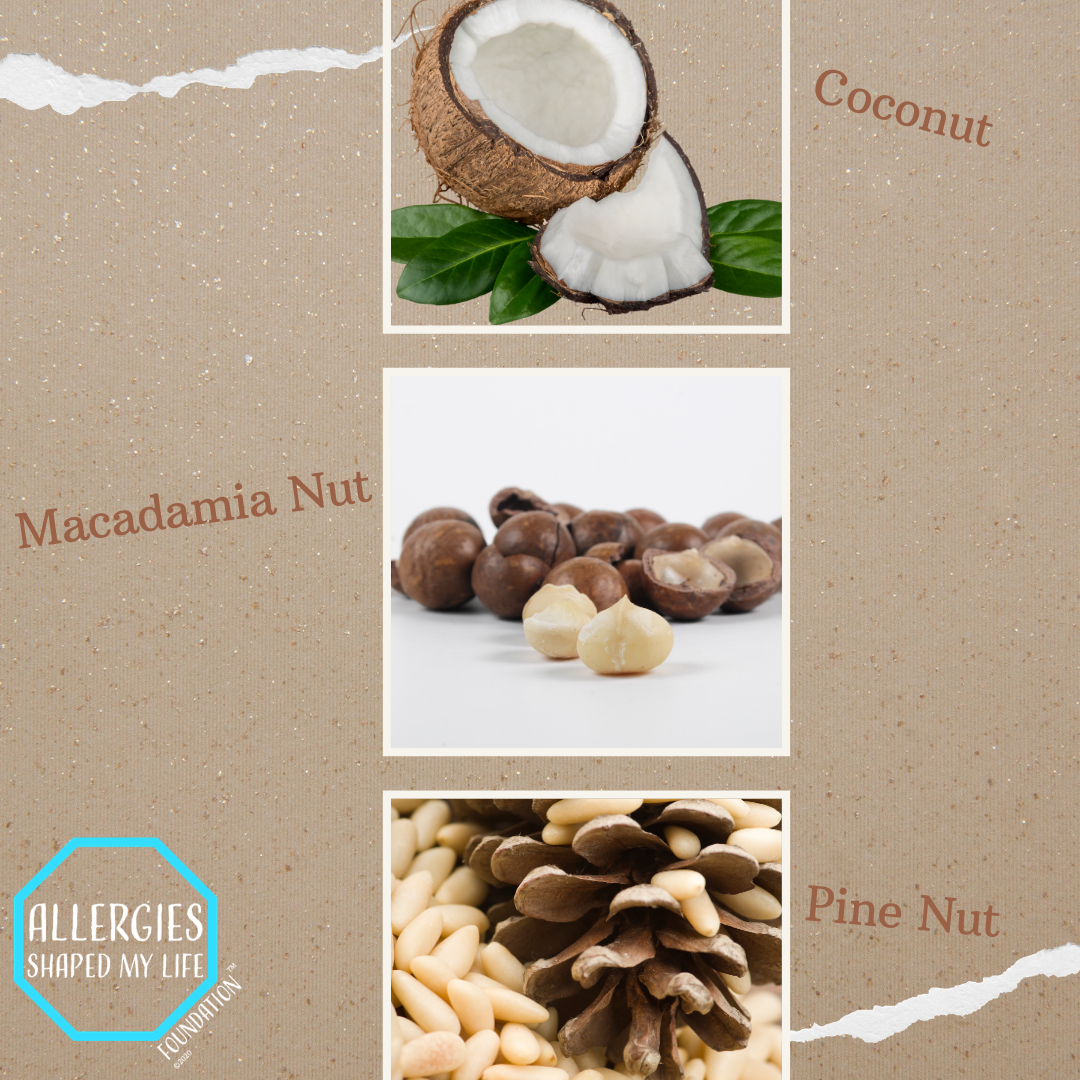Let’s Review Tree Nuts
A food allergy reaction happens when an immune response occurs, and your body reacts as if the food item is an invader or a harmful substance. An allergic reaction can be mild or severe and symptoms can occur within minutes or up to hours later. Examples of symptoms can be hives, rash, flushed skin, coughing, difficulty breathing, swelling of face, tongue, or lips, etc. The onset of food allergies can occur at any age.
The Food Allergen Labeling and Consumer Protection Act (FALCPA), requires manufacturers to label their ingredients and inform the consumer of any top allergens, including tree nuts. If you have a known tree nut allergy it is especially important to read the ingredient lists carefully every time before you eat a product. Having the proper medications with you, such as an EpiPen is important. Always communicate and educate those around you to help assist staying safe from your tree nut allergy.
With the FALCPA in place, it allows more comfort and security for those who have food allergies. The FALCPA declared that the specific tree nut must be listed, such as “contains walnuts”. Even with the regulation, it is still important to know what foods could contain tree nuts, to make sure you are educated about your allergen. Now I am not going to go through every single possibility but will include quite a few to help assist, some common tree nuts are almond, beechnut, brazil nut, bush nut, cashew, filbert, ginko nut, hazelnut, hickory nut, lichee nut, nangai nut, pecan, pistachio, walnut, etc. More investigation will be necessary by reading the ingredient lists for items such as mixed nuts, candy, ice cream, baked goods, cereals, sauces, vegetarian products, etc. Be aware of non-food items, such as lotions, soaps, sunscreens, etc. Continue to watch and reduce any possibilities of cross contact, to review cross contact click here.
Interestingly enough, a coconut is a seed of a drupaceous fruit, which means most individuals do not have a reaction to coconut if they have a tree nut allergy. However, the FDA lists coconut as a tree nut so you will see it listed on the product label if it contains it. In addition, macadamia nut and pine nut are considered seeds, so these may also be tolerated with a tree nut allergy. “An allergy to one tree nut does not necessarily mean an individual is allergic to other tree nuts, but certain tree nuts are closely related, including cashew with pistachio and pecan with walnut” (Everything You Need to Know about Tree Nut Allergy | AAAAI, 2020). Also, “Nutmeg, water chestnut, butternut squash and shea nuts are not tree nuts (the term “nut” does not always indicate a tree nut) and are generally well tolerated by tree nut-allergic individuals” (Everything You Need to Know about Tree Nut Allergy | AAAAI, 2020).
As long as you don’t have a known allergy to peanuts, you can eat peanuts and peanut products since they are in the category of legumes. As discussed earlier, you may be able to tolerate coconut, macadamia nut, pine nut, or other tree nuts. As always, please consult your medical team to confirm what is safe to consume based on your individual food allergies.
When it comes to having food allergies, whether it is one or many, always focus on what you can eat and not what you can’t. When having this mentality, you are able to enjoy so many delicious food products!
References:
Everything You Need to Know about Tree Nut Allergy | AAAAI. (2020, September 28). The American Academy of Allergy, Asthma & Immunology. https://www.aaaai.org/conditions-and-treatments/library/allergy-library/tree-nut-allergy
Tree Nut. (2021, February 26). Food Allergy Research & Education. https://www.foodallergy.org/living-food-allergies/food-allergy-essentials/common-allergens/tree-nut
Tree Nut Allergy. (2015). Kids with Food Allergies, a Division of the Asthma and Allergy Foundation of America. https://www.kidswithfoodallergies.org/tree-nut-allergy.aspx


